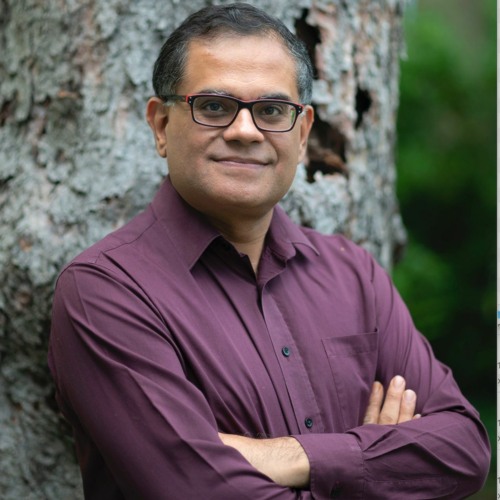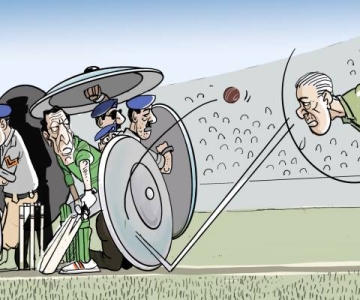My Interview conducted by Abdullah Khan for Earthen Lamp Journal:
ELJ: Tell us something about your journey from being a civil servant to a journalist and then to a writer of non-fiction books.
RR: It has been a mad, chaotic yet edifying journey. I have been a civil servant in Pakistan and then with the Asian Development Bank. Learnt a lot for both these careers but I realized that if I had to write, I needed to be free of shackles. However, that dream still eludes as one cannot make a living as a full-time writer. So I have been doing other jobs while attempting to write. I haven’t given up on the idea of becoming a full time writer. [Laughs]
ELJ: What was the inspiration behind your first book, Delhi by Heart?
RR: Delhi by Heart was a result of my discovery of medieval Delhi that even in the twenty-first century captures your attention due to the layers of visual symbols everywhere. I had read the history of India-Pakistan but visualizing it in Delhi was a different experience. As I learnt more about the forgotten chapter of our shared history, I thought there was a book and newspaper articles of essays will not do it justice. The book was also a statement that constructed nationalism of India and Pakistan were a departure from nine centuries of myriad, contradictory histories.
ELJ: Pakistan has produced many gifted fiction writers during last two decades. But, on the non-fiction side, there aren’t many popular names. Do you think Pakistani writers prefer the fiction route to tell their stories?
RR: I think there are many who are writing non-fiction as well. But the real acclaim has come through fiction in an era when global curiosity on Pakistan grew. The novels of Mohsin Hamid, Mohammed Hanif, Kamila Shamsie and Nadeeem Aslam provide a window to the world beyond the horrific headlines that are attached to Pakistan and its residents.
ELJ: Your first book Delhi by Heart was a travel memoir, right? What is your latest book, The Fractious Path, all about?
RR: The Fractious Path is actually a collection of commentaries written for a Pakistani newspaper during 2008-13. This was the period when democracy returned to Pakistan after a decade of dictatorship and has continued. The commentaries provide a view on the democratic transition, the issues that Pakistan faced (and continues to face) and how the society is coping with them. Unlike the gloom and doom views, I think my articles capture the struggles of Pakistani civilian actors to reclaim space from civil-military bureaucracy and a shift in our history where the democratic government peacefully handed over power to another civilian government.
ELJ: How do you look at the future of democracy in Pakistan?
RR: The future of democracy in Pakistan is not bleak as pundits used to predict. In fact, there is an inner robustness within the political processes that has enabled the civilian actors. This does not mean that the military has completely retreated into the barracks but the fact that it no longer is in a position (or even interested) to launch a coup is a departure.
At the same time, the political parties need to instill greater public confidence. Most are dynastic, leader-centric and largely undemocratic structures. But there is immense pressure from the urban electorate especially the young men and women for change. So the signs are not too bad.
ELJ: From Tahrik-e-Taliban in Pakistan, to the fringe elements in India and Bodu Bela Sena in Sri Lanka, almost all South Asian countries are infested with right wing extremism. How do you see these negative trends?
RR: Pakistan’s case is slightly different from the others. For more than three decades, the Afghanistan connection and wars have led to the growth of elements like TTP. For years, the country has supported militias to attain foreign policy goals. There is some reversal now as the military has been engaged in counter-terrorism operations. But in general there is an increase in religious violence in the region. In India, we have seen caste and religion based killings, in Bangladesh secularists are being killed and the government is also clamping down on democratic freedoms. Sri Lanka is reeling under the after effects of a long civil war and the human rights abuses that took place in the wake of it. The reality is that minorities across the region are under threat and this has something to do with the brand of nationalism that most states have espoused. Only a South-Asian vision can undo this.
ELJ: How important is democracy in Pakistan for continuous peace in South Asia?
RR: Democratic or let’s say representative rule is vital for peace in the region. In Pakistan, the civilian leaders are committed to regional peace as they want the country to progress in economic terms. Similarly, democracy allows for check and balances against executive excesses and inhibits states to indulge in irresponsible tactics.
ELJ: How do you look at the Indian prime minister’s visit to Pakistan? Will the Nawaz-Modi duo solve all pending issues between India and Pakistan?
RR: I think Modi’s Pakistan initiative was fantastic. He surprised and silenced his critics in both countries. But the situation is so complex due to non state actors like Jaish e Mohammad that we need bold political initiatives on both sides. Pakistan must nab and undo the elements that are keen to sabotage peace. I don’t think that the situation would improve soon but all we can do now is to keep the borders peaceful, solve the smaller disputes and encourage people to people contact. The iron curtain built after 1965 war needs to go away.
ELJ: What is going to be your next book?
RR: I am working on a memoir that deals with my recent years of media and public engagement in Pakistan, my decision to leave my country and adjusting to a different society even if for a short period of time. More than a book it is a catharsis that I need to undergo. Let’s see if publishers will find it interesting.
ELJ: Do you have any plan to do a fiction book?
RR: Indeed. Now that I am in a small town where many fiction writers live, I am finding the right kind of space and environment to imagine the stories that have been long brewing but could not be penned due to my hectic life in Pakistan. I have realised that phases of solitude and disengagement are necessary for writing. Fiction requires an intense engagement with yourself and I am slowly getting there.
Wish me luck. [Laughs]
Raza Rumi is a Pakistani author, policy analyst, and a journalist. He has been affiliated with The Friday Times, Pakistan’s foremost liberal weekly paper as a writer and an editor for a decade. Raza is also a commentator for several Pakistani, regional and international foreign publications. In Pakistan, he worked in the broadcast media as an analyst and hosted talk shows at Capital TV and Express News. In 2014, he moved to the United States after an assassination attempt, ostensibly carried out by Islamic extremists. Currently he is a scholar in residence at Ithaca College, New York USA; and visiting Faculty at Gallatin School, NYU. Raza is also a fellow at National Endowment for Democracy (USA), the Berkeley Center for Religion, Peace and World Affairs (USA) and Jinnah Institute (Pakistan). In the past he has worked at the Asian Development Bank as a Governance Specialist and later advised several international development agencies such as UK AID, UNDP, UNICEF World Bank, among others. In his early career he was a member of Pakistan Administrative Service and an official at the United Nations Peacekeeping Mission in Kosovo.
He is the author of Delhi by Heart: Impressions of a Pakistani Traveller and The Fractious Path.



